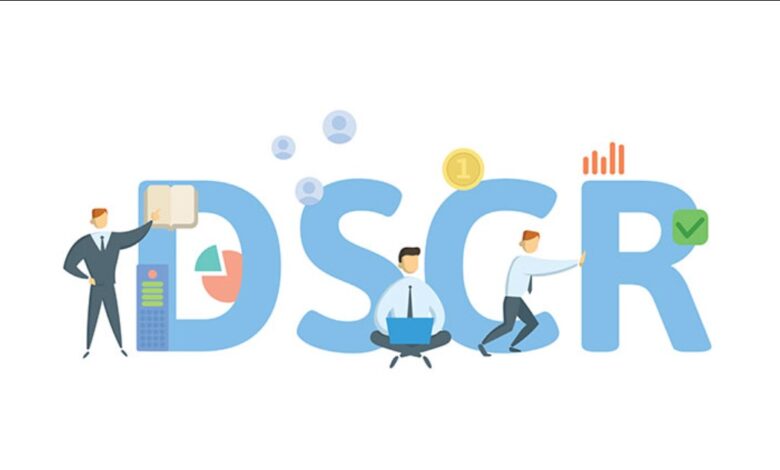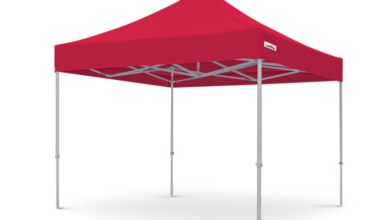A Game-Changer for Real Estate Investors: DSCR Mortgages

A Game-Changer for Real Estate Investors: DSCR Mortgages
The Debt Service Coverage Ratio (DSCR) mortgage has gained traction as a preferred financing option among real estate investors. Unlike traditional loans that require evidence of personal income, DSCR mortgages focus on the income generated by the investment property. This unique approach enables investors to expand their real estate holdings without being restricted by conventional income-based qualifications. However, like any financial product, DSCR mortgages have their own advantages and drawbacks. This guide explores these pros and cons, helping you decide if a DSCR mortgage suits your investment strategy.
What is a DSCR Mortgage?
A DSCR mortgage is a loan specifically designed for real estate investors, allowing qualification based on the cash flow of the property instead of the borrower’s personal income. The DSCR is calculated by dividing the property’s net operating income (NOI) by its total debt obligations, including mortgage payments. A DSCR over 1.0 means the property generates enough income to cover loan payments, which is typically required by lenders.
For example, a DSCR of 1.2 indicates that the property’s NOI is 120% of its debt obligations, providing a cushion for repayment. While most lenders require a DSCR of at least 1.25, some may accept lower ratios depending on factors such as the property’s location, type, and the borrower’s experience.
Benefits of DSCR Mortgages
Simplified Qualification Process
DSCR mortgages offer a streamlined approval process for investors. Unlike traditional loans, which evaluate personal income, these mortgages focus on the property’s cash flow. This is especially advantageous for business owners, self-employed individuals, and others with complex financial profiles.
This approach enables investors to grow their portfolios without the burdensome income documentation often required for conventional loans.
No Personal Income Documentation Needed
Conventional loans typically require detailed income documentation, such as W-2s, tax returns, and pay stubs. In contrast, DSCR mortgages do not consider personal income, making them a practical option for investors who reinvest their earnings or have irregular income streams.
This feature allows investors to qualify based solely on the property’s performance, even if they have extensive tax write-offs or variable income.
Flexible Loan Terms
DSCR mortgage lenders generally provide a wide range of options, including adjustable or fixed-rate mortgages, varying repayment periods, and competitive interest rates.
This flexibility enables investors to choose loan terms that align with their investment strategies, whether focused on short- or long-term goals.
Potential for Larger Loan Amounts
Because DSCR mortgages emphasize a property’s income-generating potential, borrowers may qualify for larger loan amounts compared to traditional financing.
For profitable properties in prime locations, these loans offer access to additional capital, empowering investors to pursue significant real estate opportunities.
Drawbacks of DSCR Mortgages
Higher Interest Rates
DSCR mortgages often come with higher interest rates than conventional loans. Lenders charge these rates to offset the additional risk of basing the loan on property income rather than personal financial standing.
Although these higher rates might not drastically affect cash flow, they can increase the overall cost of the loan.
Stricter Property Requirements
DSCR mortgage providers often enforce strict criteria for property income and condition. Properties that fail to meet these standards or require significant repairs may not be eligible.
Investors should thoroughly evaluate potential properties, as lenders may deny loans if the DSCR ratio falls below acceptable thresholds.
Larger Down Payment Requirements
Many DSCR loans require a down payment of 25% or more, which may pose challenges for investors with limited upfront capital.
While some lenders offer lower down payment options, these typically come with higher interest rates, making larger upfront investments unavoidable for many borrowers.
Income Disruptions and Vacancy Risks
DSCR mortgages are heavily reliant on property income. Events like tenant vacancies, market downturns, or unforeseen expenses can disrupt income flow, potentially impacting the borrower’s ability to meet loan obligations.
To mitigate this risk, investors should maintain reserve funds to cover periods of reduced or no income.
Comparing DSCR Mortgages to Traditional Investment Loans
Qualification Requirements
Traditional investment loans focus on personal income verification through tax returns and credit evaluations, while DSCR loans base approval solely on the property’s cash flow.
This distinction simplifies the qualification process but demands properties with strong financial performance.
Loan Terms and Rates
DSCR mortgages offer greater flexibility in loan terms but often come with higher interest rates compared to traditional loans. Investors should consider how these factors affect their long-term profitability.
Down Payments and LTV Ratios
Loan-to-value (LTV) ratios are generally lower for DSCR mortgages, resulting in higher down payment requirements. This reduces lender risk but necessitates a larger upfront investment from borrowers.
Who Should Consider a DSCR Mortgage?
Experienced Investors
Investors with established portfolios or complex financial situations often find DSCR mortgages attractive. These loans allow them to scale their portfolios without the hurdles of income verification.
Self-Employed Borrowers
Self-employed individuals and those without traditional salaries benefit significantly from DSCR mortgages, as they bypass the need for conventional income documentation.
Owners of High-Cash Flow Properties
Investors managing well-performing rental properties can leverage DSCR mortgages to qualify for higher loan amounts, accelerating their portfolio growth.
Alternatives to DSCR Mortgages
Traditional Loans
While offering lower interest rates, traditional loans come with stringent income verification requirements, limiting their accessibility for non-traditional earners.
Asset-Based Loans
These loans evaluate the borrower’s assets rather than income, providing another option for those with substantial liquid holdings.
Portfolio Loans
Portfolio loans allow investors to use multiple properties as collateral, making them ideal for those wanting to leverage entire portfolios rather than individual property income.
Conclusion: Are DSCR Mortgages Right for You?
DSCR mortgages present an innovative solution for investors focusing on property-generated income instead of personal financial standing. With benefits such as simpler qualification, flexible terms, and higher loan amounts, they are well-suited for experienced investors and self-employed individuals. However, the higher interest rates, stringent property requirements, and larger down payment needs mean they may not be the best choice for everyone.
Evaluate your financial situation and investment objectives carefully to determine if a DSCR mortgage aligns with your goals. Explore alternatives to ensure you choose the best financing option for your unique needs.
The Debt Service Coverage Ratio (DSCR) mortgage has gained traction as a preferred financing option among real estate investors. Unlike traditional loans that require evidence of personal income, DSCR mortgages focus on the income generated by the investment property. This unique approach enables investors to expand their real estate holdings without being restricted by conventional income-based qualifications. However, like any financial product, DSCR mortgages have their own advantages and drawbacks. This guide explores these pros and cons, helping you decide if a DSCR mortgage suits your investment strategy.
What is a DSCR Mortgage?
A DSCR mortgage is a loan specifically designed for real estate investors, allowing qualification based on the cash flow of the property instead of the borrower’s personal income. The DSCR is calculated by dividing the property’s net operating income (NOI) by its total debt obligations, including mortgage payments. A DSCR over 1.0 means the property generates enough income to cover loan payments, which is typically required by lenders.
For example, a DSCR of 1.2 indicates that the property’s NOI is 120% of its debt obligations, providing a cushion for repayment. While most lenders require a DSCR of at least 1.25, some may accept lower ratios depending on factors such as the property’s location, type, and the borrower’s experience.
Benefits of DSCR Mortgages
Simplified Qualification Process
DSCR mortgages offer a streamlined approval process for investors. Unlike traditional loans, which evaluate personal income, these mortgages focus on the property’s cash flow. This is especially advantageous for business owners, self-employed individuals, and others with complex financial profiles.
This approach enables investors to grow their portfolios without the burdensome income documentation often required for conventional loans.
No Personal Income Documentation Needed
Conventional loans typically require detailed income documentation, such as W-2s, tax returns, and pay stubs. In contrast, DSCR mortgages do not consider personal income, making them a practical option for investors who reinvest their earnings or have irregular income streams.
This feature allows investors to qualify based solely on the property’s performance, even if they have extensive tax write-offs or variable income.
Flexible Loan Terms
DSCR mortgage lenders generally provide a wide range of options, including adjustable or fixed-rate mortgages, varying repayment periods, and competitive interest rates.
This flexibility enables investors to choose loan terms that align with their investment strategies, whether focused on short- or long-term goals.
Potential for Larger Loan Amounts
Because DSCR mortgages emphasize a property’s income-generating potential, borrowers may qualify for larger loan amounts compared to traditional financing.
For profitable properties in prime locations, these loans offer access to additional capital, empowering investors to pursue significant real estate opportunities.
Read also: Take Control Of Your Car Loan: The Power Of Auto Refinancing
Drawbacks of DSCR Mortgages
Higher Interest Rates
DSCR mortgages often come with higher interest rates than conventional loans. Lenders charge these rates to offset the additional risk of basing the loan on property income rather than personal financial standing.
Although these higher rates might not drastically affect cash flow, they can increase the overall cost of the loan.
Stricter Property Requirements
DSCR mortgage providers often enforce strict criteria for property income and condition. Properties that fail to meet these standards or require significant repairs may not be eligible.
Investors should thoroughly evaluate potential properties, as lenders may deny loans if the DSCR ratio falls below acceptable thresholds.
Larger Down Payment Requirements
Many DSCR loans require a down payment of 25% or more, which may pose challenges for investors with limited upfront capital.
While some lenders offer lower down payment options, these typically come with higher interest rates, making larger upfront investments unavoidable for many borrowers.
Income Disruptions and Vacancy Risks
DSCR mortgages are heavily reliant on property income. Events like tenant vacancies, market downturns, or unforeseen expenses can disrupt income flow, potentially impacting the borrower’s ability to meet loan obligations.
To mitigate this risk, investors should maintain reserve funds to cover periods of reduced or no income.
Comparing DSCR Mortgages to Traditional Investment Loans
Qualification Requirements
Traditional investment loans focus on personal income verification through tax returns and credit evaluations, while DSCR loans base approval solely on the property’s cash flow.
This distinction simplifies the qualification process but demands properties with strong financial performance.
Loan Terms and Rates
DSCR mortgages offer greater flexibility in loan terms but often come with higher interest rates compared to traditional loans. Investors should consider how these factors affect their long-term profitability.
Down Payments and LTV Ratios
Loan-to-value (LTV) ratios are generally lower for DSCR mortgages, resulting in higher down payment requirements. This reduces lender risk but necessitates a larger upfront investment from borrowers.
Who Should Consider a DSCR Mortgage?
Experienced Investors
Investors with established portfolios or complex financial situations often find DSCR mortgages attractive. These loans allow them to scale their portfolios without the hurdles of income verification.
Self-Employed Borrowers
Self-employed individuals and those without traditional salaries benefit significantly from DSCR mortgages, as they bypass the need for conventional income documentation.
Owners of High-Cash Flow Properties
Investors managing well-performing rental properties can leverage DSCR mortgages to qualify for higher loan amounts, accelerating their portfolio growth.
Alternatives to DSCR Mortgages
Traditional Loans
While offering lower interest rates, traditional loans come with stringent income verification requirements, limiting their accessibility for non-traditional earners.
Asset-Based Loans
These loans evaluate the borrower’s assets rather than income, providing another option for those with substantial liquid holdings.
Portfolio Loans
Portfolio loans allow investors to use multiple properties as collateral, making them ideal for those wanting to leverage entire portfolios rather than individual property income.
Conclusion: Are DSCR Mortgages Right for You?
DSCR mortgages present an innovative solution for investors focusing on property-generated income instead of personal financial standing. With benefits such as simpler qualification, flexible terms, and higher loan amounts, they are well-suited for experienced investors and self-employed individuals. However, the higher interest rates, stringent property requirements, and larger down payment needs mean they may not be the best choice for everyone.
Evaluate your financial situation and investment objectives carefully to determine if a DSCR mortgage aligns with your goals. Explore alternatives to ensure you choose the best financing option for your unique needs.






